- Home
- Herman Melville
Moby Dick; Or, The Whale Page 7
Moby Dick; Or, The Whale Read online
Page 7
CHAPTER 6
The Street
If I had been astonished at first catching a glimpse of so outlandishan individual as Queequeg circulating among the polite societyof a civilized town, that astonishment soon departed upon takingmy first daylight stroll through the streets of New Bedford.
In thoroughfares nigh the docks, any considerable seaport will frequentlyoffer to view the queerest looking nondescripts from foreign parts.Even in Broadway and Chestnut streets, Mediterranean mariners willsometimes jostle the affrighted ladies. Regent Street is not unknownto Lascars and Malays; and at Bombay, in the Apollo Green, live Yankeeshave often scared the natives. But New Bedford beats all Water Streetand Wapping. In these last-mentioned haunts you see only sailors;but in New Bedford, actual cannibals stand chatting at street corners;savages outright; many of whom yet carry on their bones unholy flesh.It makes a stranger stare.
But, besides the Feegeeans, Tongatobooarrs, Erromanggoans, Pannangians,and Brighggians, and, besides the wild specimens of the whaling-craftwhich unheeded reel about the streets, you will see other sights stillmore curious, certainly more comical. There weekly arrive in this townscores of green Vermonters and New Hampshire men, all athirst for gainand glory in the fishery. They are mostly young, of stalwart frames;fellows who have felled forests, and now seek to drop the axe and snatchthe whale-lance. Many are as green as the Green Mountains whencethey came. In some things you would think them but a few hours old.Look there! that chap strutting round the corner. He wears a beaver hatand swallow-tailed coat, girdled with a sailor-belt and a sheath-knife.Here comes another with a sou'-wester and a bombazine cloak.
No town-bred dandy will compare with a country-bred one--I meana downright bumpkin dandy--a fellow that, in the dog-days, will mowhis two acres in buckskin gloves for fear of tanning his hands.Now when a country dandy like this takes it into his head to makea distinguished reputation, and joins the great whale-fishery, youshould see the comical things he does upon reaching the seaport.In bespeaking his sea-outfit, he orders bell-buttons to his waistcoats;straps to his canvas trowsers. Ah, poor Hay-Seed! how bitterlywill burst those straps in the first howling gale, when thouart driven, straps, buttons, and all, down the throat of the tempest.
But think not that this famous town has only harpooneers,cannibals, and bumpkins to show her visitors. Not at all.Still New Bedford is a queer place. Had it not been for us whalemen,that tract of land would this day perhaps have been in as howlingcondition as the coast of Labrador. As it is, parts of herback country are enough to frighten one, they look so bony.The town itself is perhaps the dearest place to live in,in all New England. It is a land of oil, true enough:but not like Canaan; a land, also, of corn and wine.The streets do not run with milk; nor in the spring-timedo they pave them with fresh eggs. Yet, in spite of this,nowhere in all America will you find more patrician-like houses;parks and gardens more opulent, than in New Bedford. Whence camethey? how planted upon this once scraggy scoria of a country?
Go and gaze upon the iron emblematical harpoons round yonder loftymansion, and your question will be answered. Yes; all these brave housesand flowery gardens came from the Atlantic, Pacific, and Indian oceans.One and all, they were harpooned and dragged up hither from the bottomof the sea. Can Herr Alexander perform a feat like that?
In New Bedford, fathers, they say, give whales for dowers to theirdaughters, and portion off their nieces with a few porpoises a-piece.You must go to New Bedford to see a brilliant wedding; for, they say,they have reservoirs of oil in every house, and every night recklesslyburn their lengths in spermaceti candles.
In summer time, the town is sweet to see; full of fine maples--long avenues of green and gold. And in August, high in air,the beautiful and bountiful horse-chestnuts, candelabra-wise, profferthe passer-by their tapering upright cones of congregated blossoms.So omnipotent is art; which in many a district of New Bedford hassuperinduced bright terraces of flowers upon the barren refuserocks thrown aside at creation's final day.
And the women of New Bedford, they bloom like their own red roses.But roses only bloom in summer; whereas the fine carnationof their cheeks is perennial as sunlight in the seventh heavens.Elsewhere match that bloom of theirs, ye cannot, save in Salem,where they tell me the young girls breathe such musk, their sailorsweethearts smell them miles off shore, as though they were drawingnigh the odorous Moluccas instead of the Puritanic sands.
CHAPTER 7
The Chapel

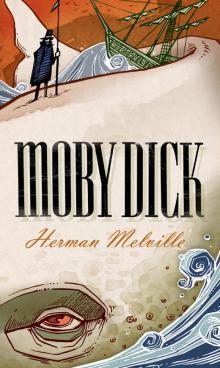 Moby Dick; Or, The Whale
Moby Dick; Or, The Whale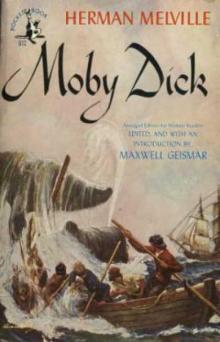 Moby Dick
Moby Dick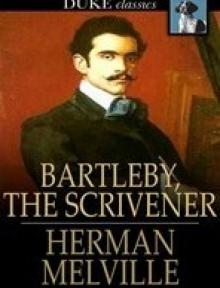 Benito Cereno and Bartleby the Scrivener
Benito Cereno and Bartleby the Scrivener Israel Potter: His Fifty Years of Exile (Annotated Edition)
Israel Potter: His Fifty Years of Exile (Annotated Edition)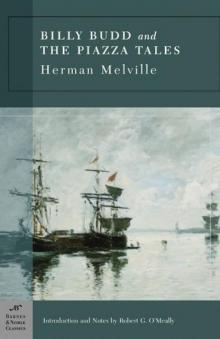 Billy Budd and the Piazza Tales
Billy Budd and the Piazza Tales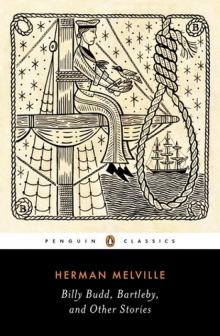 Billy Budd, Bartleby, and Other Stories
Billy Budd, Bartleby, and Other Stories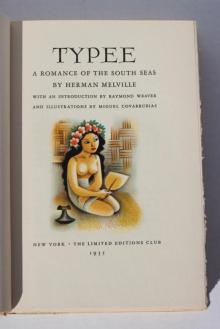 Typee: A Romance of the South Seas
Typee: A Romance of the South Seas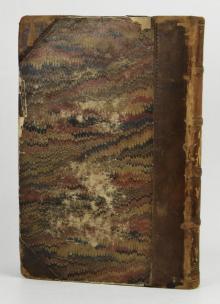 Omoo: Adventures in the South Seas
Omoo: Adventures in the South Seas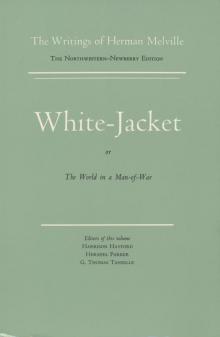 White Jacket; Or, The World on a Man-of-War
White Jacket; Or, The World on a Man-of-War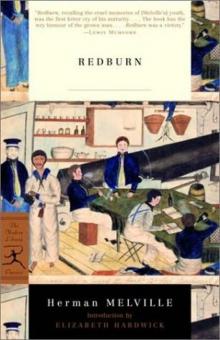 Redburn. His First Voyage
Redburn. His First Voyage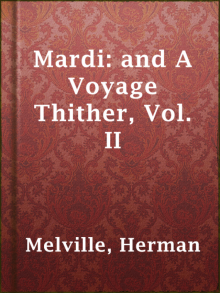 Mardi: and A Voyage Thither, Vol. II
Mardi: and A Voyage Thither, Vol. II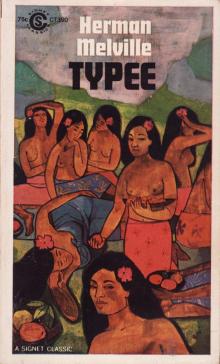 Typee
Typee The Paradise of Bachelors and the Tartarus of Maids
The Paradise of Bachelors and the Tartarus of Maids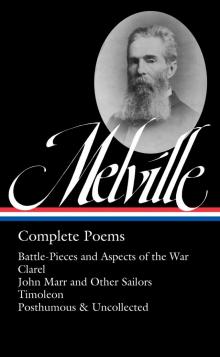 Herman Melville- Complete Poems
Herman Melville- Complete Poems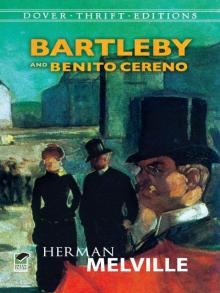 Bartleby and Benito Cereno
Bartleby and Benito Cereno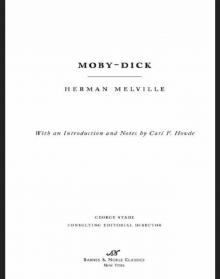 Moby-Dick (Barnes & Noble Classics Series)
Moby-Dick (Barnes & Noble Classics Series)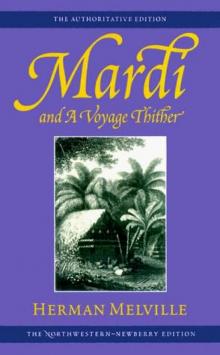 Mardi and a Voyage Thither
Mardi and a Voyage Thither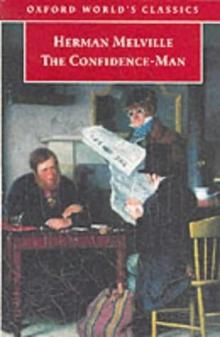 The Confidence-Man
The Confidence-Man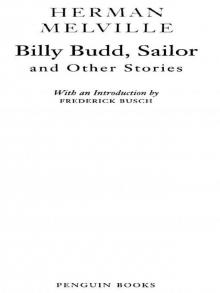 Billy Budd and Other Stories
Billy Budd and Other Stories Bartleby the Scrivener
Bartleby the Scrivener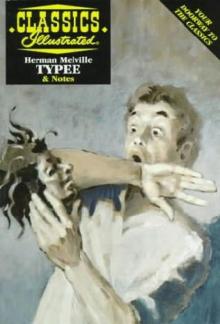 Typee: A Romance of the South Sea
Typee: A Romance of the South Sea I and My Chimney
I and My Chimney Billy Budd
Billy Budd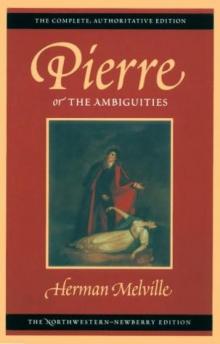 Pierre, Or the Ambiguities
Pierre, Or the Ambiguities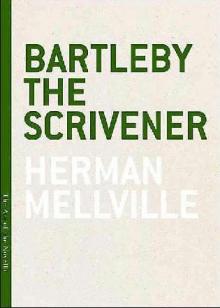 Bartleby, The Scrivener A Story of Wall-Street
Bartleby, The Scrivener A Story of Wall-Street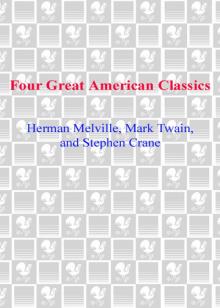 Four Great American Classics
Four Great American Classics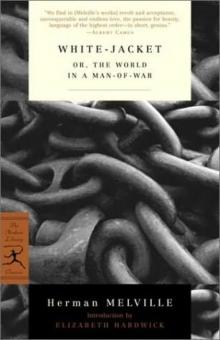 White Jacket or, The World on a Man-of-War
White Jacket or, The World on a Man-of-War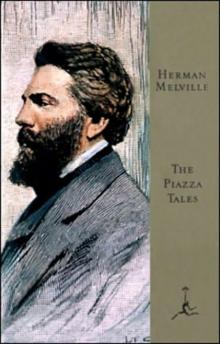 The Piazza Tales
The Piazza Tales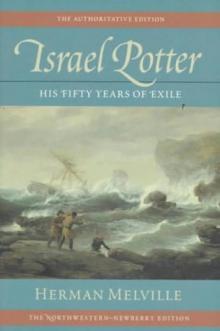 Israel Potter. Fifty Years of Exile
Israel Potter. Fifty Years of Exile